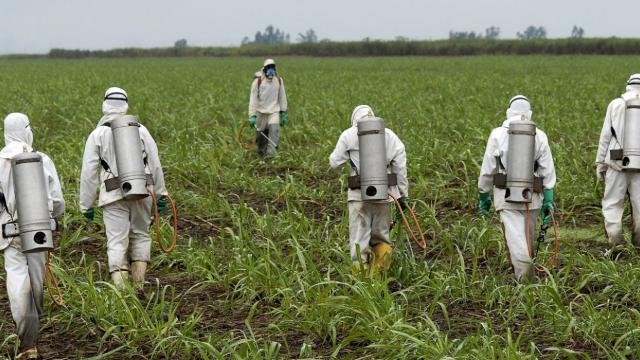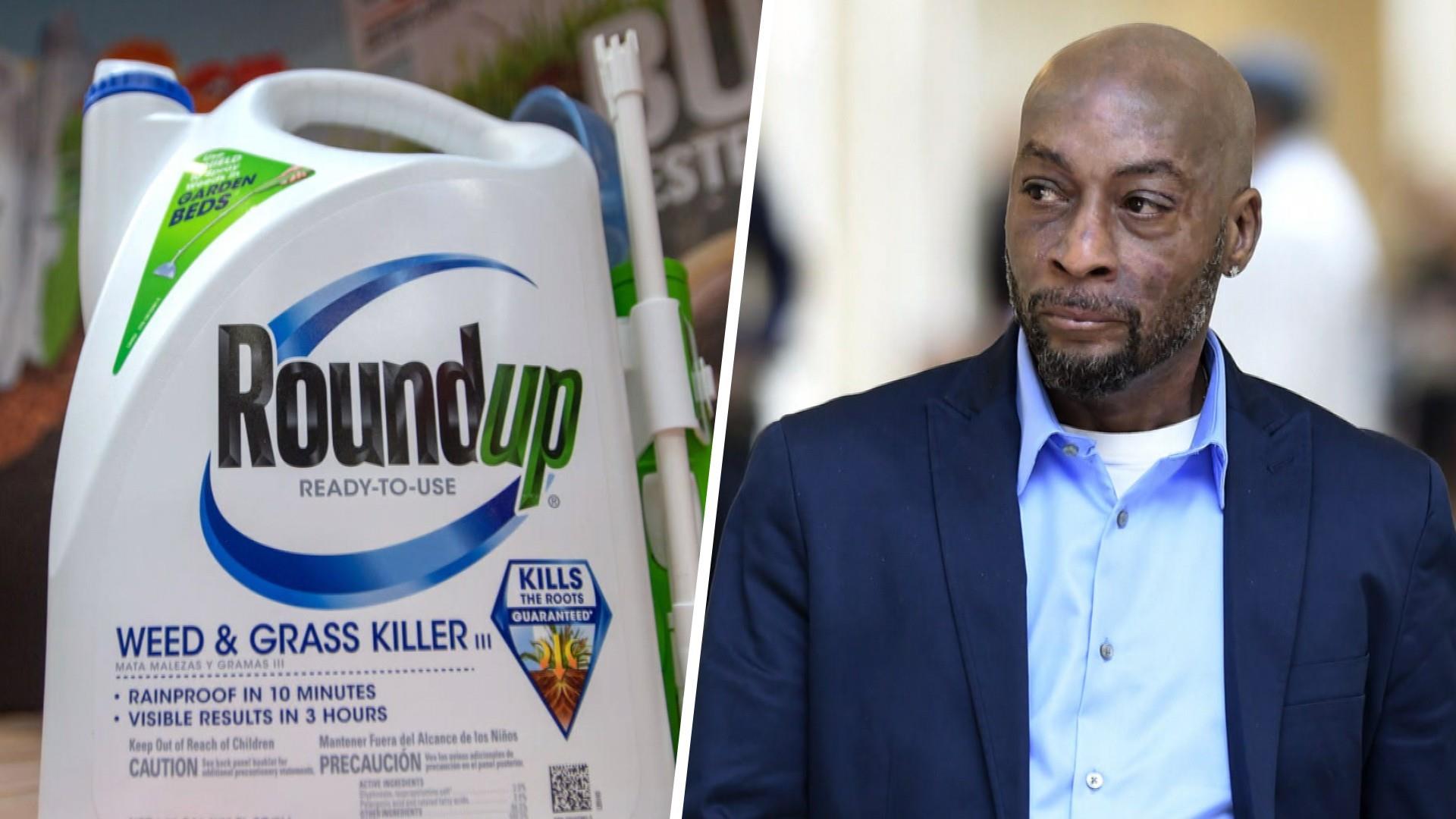
Monsanto Co. was socked with $289 million in damages in the first trial over claims that its Roundup weed killer causes cancer.
Dewayne Johnson, a former school groundskeeper whose doctors didn’t think he’d live long enough learn the verdict, prevailed Friday in San Francisco state court after jurors deliberated for three days. The trial was an important test of the evidence against Monsanto and will serve as a template for litigating thousands of other claims over the herbicide.
Johnson was seeking $412 million in damages. Jurors awarded him $39 million for his losses and $250 million to punish the company after finding it liable for a design defect and failing to warn of Roundup’s risks. Monsanto said it will appeal.
“Today’s decision does not change the fact that more than 800 scientific studies and reviews — and conclusions by the U.S. Environmental Protection Agency, the U.S. National Institutes of Health and regulatory authorities around the world — support the fact that glyphosate does not cause cancer, and did not cause Mr. Johnson’s cancer,” Monsanto Vice President Scott Partridge said in a statement.
Germany’s Bayer AG closed a deal to buy Monsanto for $66 billion in June. If the litigation generates large verdicts against Monsanto, it could have a material impact on Bayer’s bottom line, said Chris Perrella, an analyst for Bloomberg Intelligence. Since Roundup is ubiquitous in modern farming, there’s a “huge potential liability,” though it’s very uncertain it will materialize, he said. Bayer investors might not be aware of the risks because many analysts covering the company focus on pharmaceuticals, Perrella said.
Glyphosate, the main ingredient in Roundup, was first approved for use in Monsanto’s weed killer in 1974. While becoming the world’s most popular and widely used herbicide, the question of whether it causes cancer has been hotly debated by environmentalists, regulators, researchers and lawyers — even as Monsanto has insisted for decades that it’s perfectly safe.
Working for a school district in Benicia, California, about 40 miles east of San Francisco, Johnson mixed and sprayed hundreds of gallons of Roundup. He was diagnosed with cancer in 2014, and in July 2017, after chemotherapy and other treatments, his oncologist gave him six months to live.
Johnson’s lawyers, relying on his testimony and expert witnesses, argued that his exposure, including accidents that got him soaked from head to toe in Roundup, caused his non-Hodgkin’s lymphoma.
Monsanto scientists knew of the cancer risk posed by Roundup as far back as the 1970s, but failed to inform the public and instead engaged in a “deliberate effort to distort the truth” as the weed killer generated hefty returns, Johnson’s lawyer, Brent Wisner, told the jury in closing arguments Tuesday.
“Despite the Environmental Protection Agency’s failure to require labeling, we are proud that an independent jury followed the evidence and used its voice to send a message to Monsanto that its years of deception regarding Roundup is over and that they should put consumer safety first over profits,” Wisner said in a statement after the verdict.
Monsanto argued that the type of cancer contracted by Johnson takes many years to form. The short period between Johnson’s first exposure in 2012 and his diagnosis in 2014 made any connection between his contact and the disease impossible, according to the company.
Monsanto lawyer George Lombardi insisted that science has found no connection between Roundup and non-Hodgkin lymphoma. In fact, Lombardi told the jury, no one has yet figured out what causes the disease.
“We don’t know why people get mycosis fungoides,” he said, using the name of the specific form of cancer Johnson has. “It would be nice if we could tell people why they get it, but we can’t.”
The case is Dewayne Johnson v. Monsanto Co., CGC-16-550128, California Superior Court, County of San Francisco (San Francisco).
Dewayne Johnson reacts after the verdict was read in the case against Monsanto at the Superior Court Of California in San Francisco, California on August 10, 2018. Josh Edelson—AFP/Getty Images
Originally published on Fortune















